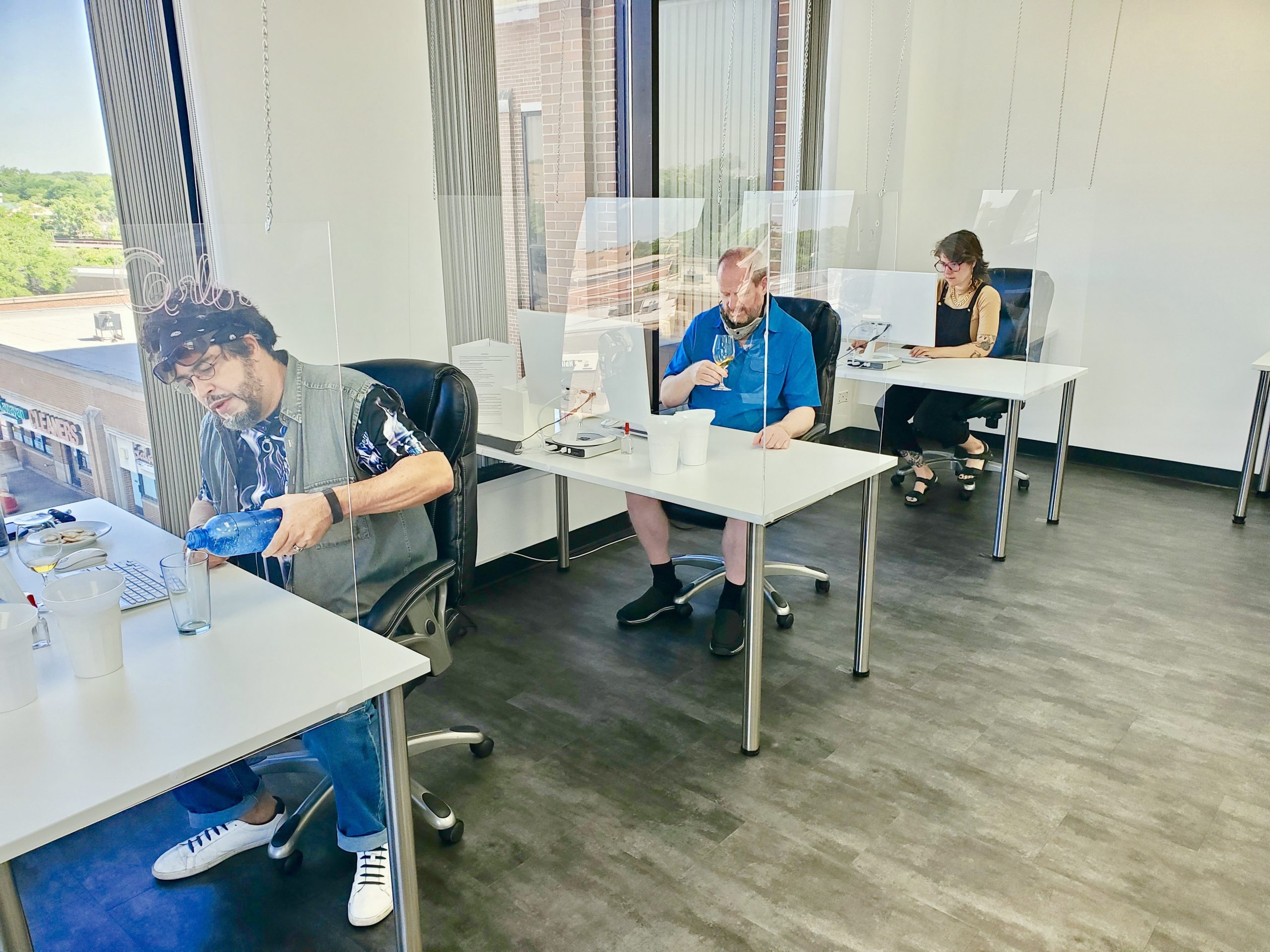We strive to uphold and maintain the most professional tasting environment in the beverage industry. In doing so, we’ve taken extra steps to ensure the safety of our esteemed professional panelists. Read on to learn about how we’ve adapted our laboratory protocols to do our part in stopping the spread of COVID-19.
Timed Panelist Arrivals
We maintain physical distance by asking that our panelists arrive to our facility at staggered times, minimizing close contact in elevators and in our foyer. Additionally, we ask that our panelists take their temperatures prior to heading to a tasting in order to ensure that they are simultaneously taking care of themselves and the colleagues they share the room with.
Plexiglass Panelist Dividers
BTI’s innovative VP of Operations designed and installed the new Plexiglass dividers that enable panelists to safely taste together in the same room. Panelists are able to remove their masks once situated in their tasting stations and the group is then able to sniff, taste, spit, and communicate; preserving BTI’s convivial and stimulating product discovery experience.
Surface Contact Minimization
BTI has temporarily halted the use of lab coats in the sensory lab. Notebooks, pens, and other objects non-essential to the process have also been removed. Each panelist station also includes replenishable water and personal spittoons in order to prevent any unnecessary contact.
Modified Sample Presentation and Product Reveal
Panelists receive a cart bearing the entirety of the day’s samples to be tasted. Samples are covered in order to retain their integrity, and panelists are then guided in a categorical tasting by BTI’s Associate Director and Panel Moderator. Post-tasting, products are revealed, and panelists are able to individually examine products and re-visit samples of interest.
Tasting Room Sanitation
Immediately following each tasting, all surfaces in the Sensory Lab are thoroughly cleaned, including the sanitization of doorknobs, chairs, and computers. This particular process is not a new practice for BTI, but its continuation is more important than ever.
